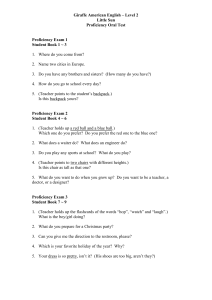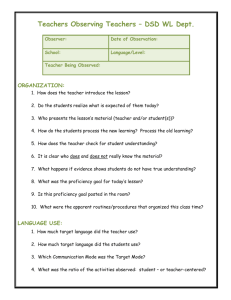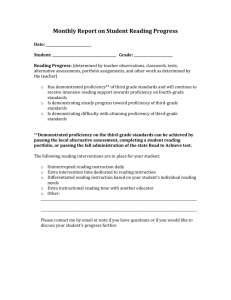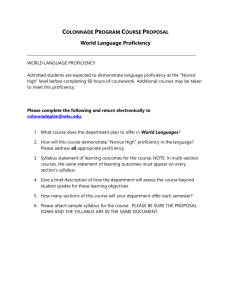Outcomes-Based Sample Evaluation Questions
advertisement
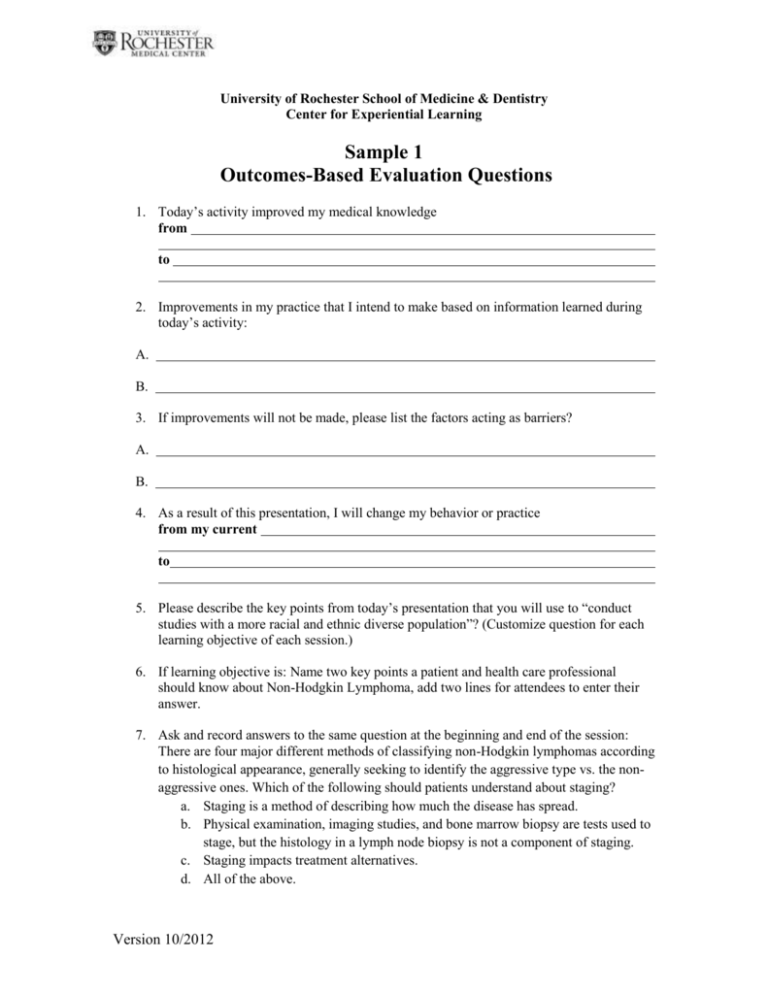
University of Rochester School of Medicine & Dentistry Center for Experiential Learning Sample 1 Outcomes-Based Evaluation Questions 1. Today’s activity improved my medical knowledge from to 2. Improvements in my practice that I intend to make based on information learned during today’s activity: A. B. 3. If improvements will not be made, please list the factors acting as barriers? A. B. 4. As a result of this presentation, I will change my behavior or practice from my current to 5. Please describe the key points from today’s presentation that you will use to “conduct studies with a more racial and ethnic diverse population”? (Customize question for each learning objective of each session.) 6. If learning objective is: Name two key points a patient and health care professional should know about Non-Hodgkin Lymphoma, add two lines for attendees to enter their answer. 7. Ask and record answers to the same question at the beginning and end of the session: There are four major different methods of classifying non-Hodgkin lymphomas according to histological appearance, generally seeking to identify the aggressive type vs. the nonaggressive ones. Which of the following should patients understand about staging? a. Staging is a method of describing how much the disease has spread. b. Physical examination, imaging studies, and bone marrow biopsy are tests used to stage, but the histology in a lymph node biopsy is not a component of staging. c. Staging impacts treatment alternatives. d. All of the above. Version 10/2012 Sample 2 Outcomes-Based Evaluation Plan Hospital and Department _______________________________________________________ Activity Title ________________________________________________________ Very likely, you will require a table that is larger than the example below. The following is to give you impression of at least one possible format for organizing outcomesplanning information. outcome indicator(s) | | | | | | | | | | | | | | | Version 10/2012 source of data method to collect who collects data when collect data (records, clients, data etc.) (questionnaires, interviews, etc.) Sample 3 Outcomes-Based Evaluation Self-Assessment Instructions: Pre-Activity: Please rate your desired and current level of proficiency (columns A and B) for each of the research-related tasks listed below: Post-Activity: Please rate your current level of proficiency now that you have completed the activity (column C). Use a 10-point scale where 10 = expert/high degree of proficiency and 1 = novice/low level of proficiency. A Desired Proficiency Level 1. Research Question: a. Write a research question that is clearly and concisely written 2. Theoretical Constructs: a. Identify theoretical constructs that are relevant to the question 3. Literature Search: a. Search and identify the relevant literature that is pertinent to your question 4. Methodology: a. b. c. d. e. f. Match a methodology that fits with your research question Use quantitative research methods Use qualitative research methods Use an appropriate data collection method Analyze the data collected Identify appropriate local resources to complete the data analysis 5. Resources: a. Identify internal and external resources that you might have access to b. Identify potential collaborators for your project 6. Budget: a. Create a budget for your project 7. Ethics: a. Submit your project to a Research Ethics Board (REB) 8. Funding: a. Identify sources of funding locally and nationally 9. Timeline: a. Create a timeline for your research project Version 10/2012 B Pre-Activity Proficiency Level C Post-Activity Proficiency Level
